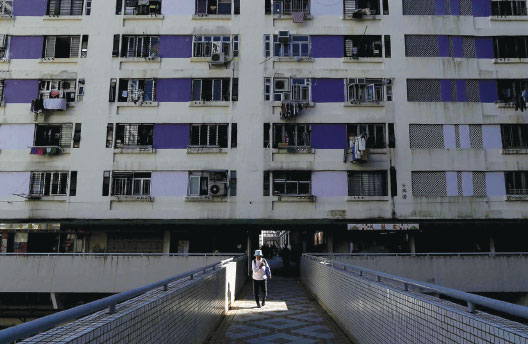Boosting public housing seems to be the only way out for HK
|
A public housing estate in Chai Wan. Increasing public housing supply is a feasible way to resolve Hong Kong's long-standing housing issues and ease the anxiety among homebuyers. Provided To China Daily |
By almost every measure, the government's efforts to rein in Hong Kong's runaway property market have failed to yield tangible results.
Perhaps, a thorough review of its housing policy, focusing on increasing land supply, is in order. Critics argue that finding land in this densely populated city to build adequate housing to meet the ever surging demand is simply not a realistic solution to the problem, which has been compounded by persistent low borrowing rates and the incessant inflow of offshore capital into the local housing sector.
This has prodded more economists and industry experts to urge the government to stay aloof from the market as much as possible while concentrating on building subsidized homes for sale or rent to those at different income levels.
Doing it would mean that a much larger portion of newly created development land has to be used for public housing instead of selling it to private developers. Such a policy would, undoubtedly, lead to a sharp fall in revenue from land sales, along with a substantial rise in expenditure.
But, public housing development is a non-recurrent expenditure that won't exert a long-term strain on the budget. Temporary budget shortfalls can be easily be covered by the huge fiscal reserves that are earning meager returns.
As with any large-scale construction project, building a public housing estate can run into problems arising from budget overruns and delays. But, these are small risks to take compared to the enormous benefits that a bigger supply of subsidized homes can bring to the public.
A clear timetable of future increases in public housing supply can ease the anxiety of prospective homebuyers who have been misled by sensational reports in the gullible mass media into believing that property prices can only go up and, if they don't buy now, they'll never be able to afford it later. Such public obsession has fueled the scramble that, in turn, has pushed homes prices to unrealistic levels.
It's plain knowledge that the property market is largely controlled by an oligarchy of no more than half a dozen local developers. A massive supply of public housing can break the oligarchy's stranglehold on the market that allows them to dictate prices.

















